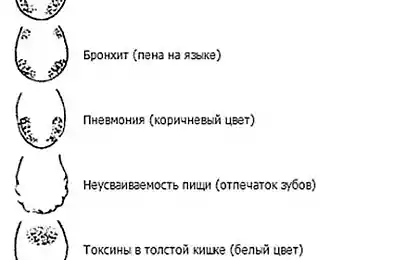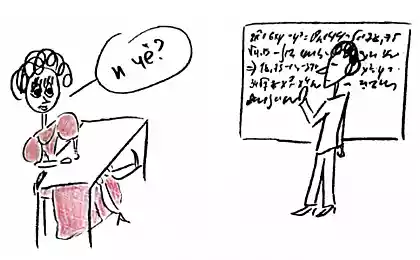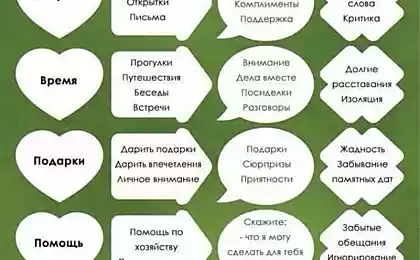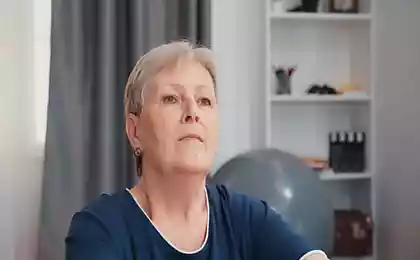199
A meticulous language teacher decided to test us with a cunning test, not everyone coped
Write words without mistakes Not everything is possible these days. Whether excessive digitalization affects, or people simply stopped reading books. Or maybe both? One way or another, we advise you to take spelling tests from time to time and remind yourself of the simple rules of spelling a word. That's what we're doing today!

Typical grammatical errors occur everywhere. It is often said that some mispronounced words can easily give a provincial in a person. But anyone can make a mistake. And we're here to remind you once again how to write and pronounce the words we most often make mistakes in. Repetition is the mother of learning!
What words do we make mistakes in?
Of course, there are a couple of exceptions to words, the second part of which begins with "L": half a liter, half a lemon. We also leave a hyphen if there is a vowel after the “floor”.
"Would you like a cake?" Errors in the endings of verbs, as you can probably already see, lead to confusion and substitution of concepts. One wrong move, your missed attention, and now you are no longer “eating a cake”, but “you will eat a cake to eat it”.

In order not to get confused in the endings, just remember to begin with the conjugation of verbs. Google it! At the end of the verbs of the first conjugation, as a rule, the letter "e" is written, the second - the letter "and".
"Swimmer, swimmer, swimmer" or "float, swimmer, swimmer"? As you can see, with the letters “a” and “o” often there is confusion. You just need to remember another simple rule: under stress, what is heard is written, and without stress, the vowel “a”. Therefore, the word “float” is correctly spelled with the letter “a”, and the words “swimmer”, “float” through “o”, since they are exceptions to the rule.
In general or in general? People often write “general” or “general” when they want to summarize something. But a literate person knows that you need to write separately - "In general."
Graduate from school or finish high school?
“Finish” is used when you need to finish something. But courses, school, university or institute can only be graduated.
I think some of today's assignments might seem too typical to you. But trust me, as long as people make mistakes in those words, they're worth talking about. If you remember a couple of typical grammar mistakes, boldly share them in the comments to this article. Let's perfect our speech together!

Typical grammatical errors occur everywhere. It is often said that some mispronounced words can easily give a provincial in a person. But anyone can make a mistake. And we're here to remind you once again how to write and pronounce the words we most often make mistakes in. Repetition is the mother of learning!
What words do we make mistakes in?
- Let's start with the classics. "Dress" or "Dress"? Everything is very simple here, but there is still confusion in oral speech. We dress someone in something, and we put something on someone. Remember this test phrase: Dress Hope, put on clothes.
- “Tearing your hair down” or “tightening your hair”?

Or another option where the mistake is often made: “to level with the opponent” or “to compare with the opponent”? In cases with the roots of “level” and “equals”, you need to choose a test word. For example, “tighten the hair” – make them even, here the root “level” is used. And in the case of "compare with the opponent" - the test word will be "equal". Therefore, it is correct to say and write “tear down” and “close up”. - "Place" or "Place"? Unfortunately, in conversation, people often use the second word. But it's a mistake. The word "to lay" does not exist in principle, it is commonplace. It is used in literary speech only with the prefix: put, lay, shift and so on. In the same way, the word “storage” cannot be used with a prefix. But for some, the “polite” sometimes slips into conversation. Don't say that!
- "You'll laugh!" In writing, my friends very often make mistakes in spelling - is and - is in verbs.

The school rule has not been abolished yet. If the verb answers the questions “what is doing?”, “what will he do?”, we do not write a soft sign, it is not necessary here, since it is not in the question. Conversely, if the word answers the questions “what to do?”, “what to do?”, then a soft sign is written in it. Easy, isn't it? - “The dress is brilliant!” or “the dress is brilliant!”

Not every teacher in Russian will immediately answer correctly. But it is worth remembering that if the dress is “shiny”, then no one in it looks “shiny”. To check, you need to pay attention to the suffix behind the root - if after it there is a vowel "a", then you can safely write the vowel "and" at the root. As you can see, it is correct to write “the dress shines brilliantly”. However, there is an exception to the rule in the roots of the words “combine” and “combination”.
Of course, there are a couple of exceptions to words, the second part of which begins with "L": half a liter, half a lemon. We also leave a hyphen if there is a vowel after the “floor”.
"Would you like a cake?" Errors in the endings of verbs, as you can probably already see, lead to confusion and substitution of concepts. One wrong move, your missed attention, and now you are no longer “eating a cake”, but “you will eat a cake to eat it”.

In order not to get confused in the endings, just remember to begin with the conjugation of verbs. Google it! At the end of the verbs of the first conjugation, as a rule, the letter "e" is written, the second - the letter "and".
"Swimmer, swimmer, swimmer" or "float, swimmer, swimmer"? As you can see, with the letters “a” and “o” often there is confusion. You just need to remember another simple rule: under stress, what is heard is written, and without stress, the vowel “a”. Therefore, the word “float” is correctly spelled with the letter “a”, and the words “swimmer”, “float” through “o”, since they are exceptions to the rule.
In general or in general? People often write “general” or “general” when they want to summarize something. But a literate person knows that you need to write separately - "In general."
Graduate from school or finish high school?

“Finish” is used when you need to finish something. But courses, school, university or institute can only be graduated.
I think some of today's assignments might seem too typical to you. But trust me, as long as people make mistakes in those words, they're worth talking about. If you remember a couple of typical grammar mistakes, boldly share them in the comments to this article. Let's perfect our speech together!
My son and daughter-in-law moved into an apartment I've been saving my whole life for, it was supposed to be temporary, but it turned out differently.
If you wish people well-being, never give them a flower in a pot, it is not good.


























